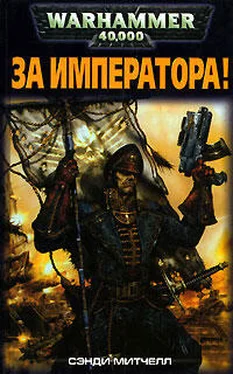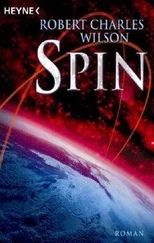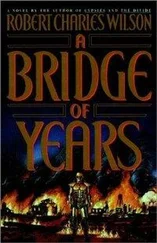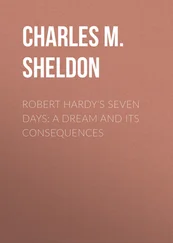But before he could answer, my cell phone rang. It was Diane, back at the house. "Where'd you guys go? Holly's kind of pissed. Abandoning her like that. Very rude, Tyler."
"There must be someone else she can aim her conversation at"
"She's just nervous. She hardly knows anyone here."
"I'm sorry, but how is that my business?"
"I just thought you guys might hit it off."
I blinked. "Hit it off?" There was no good way to interpret that. "What are you saying, you set me up with her?"
She paused for an incriminating second or two. "Come on, Tyler… don't take it like that."
For five years Diane had been coming in and out of focus like an amateur movie, or so it seemed to me. There had been times, especially after Jason left for university, when I had felt like her best friend. She'd call, we'd talk; we shopped or saw movies together. We were friends. Buddies. If there was any sexual tension it appeared to be entirely on my side, and I was careful to keep it hidden, because even this partial intimacy was fragile—I knew that without having to be told. Whatever Diane wanted from me, it didn't include passion of any kind.
E.D., of course, would never have tolerated a relationship between me and Diane unless it was chaperoned, essentially infantile, and in no danger of taking an unexpected turn. But the distance between us seemed to suit Diane, too, and for months at a time I would hardly see her. I might wave at her while she waited for the Rice bus (when she was still at Rice); but during those lapses she wouldn't call, and on the rare occasions when I was brazen enough to phone her she was never in a mood to talk.
During these times I occasionally dated girls from school, usually timid girls who would (often explicitly) have preferred seeing a more conspicuously popular guy but who had resigned themselves to a second-string social life. None of these connections lasted long. When I was seventeen I lost my virginity to a pretty, startlingly tall girl named Elaine Bowland; I tried to convince myself I was in love with her, but we drifted apart with a combination of regret and relief after eight or nine weeks.
After each of these episodes Diane would call unexpectedly, and we'd talk, and I wouldn't mention Elaine Bowland (or Toni Hickock, or Sarah Burstein), and Diane would never quite get around to telling me how she'd spent her spare time during our hiatus, and that was okay because pretty soon we were back in the bubble, suspended between romance and pretense, childhood and maturity.
I tried not to expect more. But I couldn't stop wanting her company. And I thought she wanted mine. She kept coming back for it, after all. I had seen the way she relaxed when I was with her, her spontaneous smile when I came into a room, almost a declaration: Oh, good, Tyler's here. Nothing bad ever happens when Tyler's here.
"Tyler?"
I wondered what she'd said to Holly. Tyler's really nice, but he's been dogging my heels for years now… you two would be great together!
"Tyler?" She sounded distressed. "Tyler, if you don't want to talk—"
"Actually I don't think I do."
"Then put Jason on, would you please?"
I gave him the cell. Jason listened for a moment. Then he said, "We're up the hill. No. No. Why don't you come out here? It's not as cold as all that. No."
I didn't want to see her. I started to walk away. Jason tossed me the phone and said, "Don't be an asshole, Tyler. I need to talk to you and Diane both."
"About what?"
"About the future."
It was an annoyingly cryptic remark. "Maybe you're not cold, but I am." Freezing.
"This is more important than whatever problem you're having with my sister." He looked almost comically serious. "And I know what she means to you."
"She doesn't mean anything to me."
"That wouldn't be true even if you were just friends."
"We are just friends." I had never really talked to him about Diane; this was one of the places our conversations weren't supposed to go. "Ask her yourself."
"You're pissed because she introduced you to this Holly person."
"I don't want to discuss it."
"But that's just Diane being saintly. It's her new thing. She's been reading those books."
"What books?"
"Apocalyptic theology. Usually from the best-seller shelf. You know: C. R. Ratel, Praying in the Dark, the abnegation of the worldly self. You need to watch more daytime television, Tyler. She wasn't trying to insult you. It's some kind of gesture."
"That makes it okay?" I took a few more steps away from him, toward the house. I started wondering how to get home without a ride.
"Tyler," he said, and there was something in his voice that made me turn back. "Tyler. Listen. You asked what was bothering me." He sighed. "E.D. told me something about the October Event. It's not public yet. I promised I wouldn't talk about it. But I'm going to break that promise. I'm going to break it because there are only three people in the world who feel like family to me, and one of them is my father, and the other two are you and Diane. So could you possibly bear with me just for the next few minutes?"
I caught sight of Diane working her way up the slope, still struggling into her snowy white parka, one arm in, one arm out
I looked at Jason's face, grievously unhappy in the dim holiday light from below us. That frightened me, and despite what I was feeling I agreed to hear what he had to say.
* * * * *
He whispered something to Diane when she reached the gazebo. She looked at him wide-eyed and stood back from both of us. Then Jason began to talk, softly, methodically, almost soothingly, delivering a nightmare as if it were a bedtime story.
He had heard all this from E.D., of course.
E.D. had done well after the October Event. When the satellites failed, Lawton Industries had stepped forward with plans for an immediate, practical replacement technology: high-altitude aerostats, sophisticated balloons designed to hover indefinitely in the stratosphere. Five years later E.D.'s aerostats were carrying telecom payloads and repeaters, doing multipoint voice and data broadcasts, doing almost anything (apart from GPS and astronomy) a conventional satellite could have done. E.D.'s power and influence had grown apace. Lately he had formed an aerospace lobby group, the Perihelion Foundation, and he had consulted for the federal government on a number of less public projects—in this case, NASA's ARV (Automated Reentry Vehicle) program.
NASA had been refining its ARV probes for a couple of years now. The initial launches had been designed as investigations of the October shield. Could it be penetrated, and could useful data be retrieved from outside?
The first attempt was almost literally a shot in the dark, a simple ARV payload atop a refurbished Lockheed Martin Atlas 2AS, flung into the absolute darkness over Vandenberg Air Force Base. It had looked like a failure almost immediately. The satellite, which had been designed to spend a week in orbit, dropped into the Atlantic Ocean off Bermuda moments after its launch. As if, Jason said, it had hit the Event boundary and bounced back.
But it hadn't bounced. "When they recovered it they downloaded a full week's worth of data."
"How is that possible?"
"The question isn't what's possible but what happened. What happened was, the payload spent seven days in orbit and came back the same night it left. We know that's what happened because it happened with every launch they tried, and they tried it repeatedly."
"What happened? What are you talking about, Jase? Time travel?"
"No… not exactly."
"Not exactly?"
"Just let him tell it," Diane said quietly.
There were all sorts of clues to what was really happening, Jason said. Ground-based observation seemed to suggest that the boosters actually accelerated into the barrier before they vanished, as if they had been drawn into it. But the recovered onboard data showed no such effect. The two sets of observations couldn't be reconciled. As seen from the ground, the satellites accelerated into the barrier and then dropped almost immediately back to Earth; the satellites themselves reported that they had progressed smoothly into their programmed orbits, remained there for the allotted span of time, and returned under their own power weeks or months later. (Like the Russian cosmonaut, I thought, whose story, never officially confirmed or denied, had become a sort of urban legend.) Assuming both sets of data were legitimate, there was only one explanation:
Читать дальше












